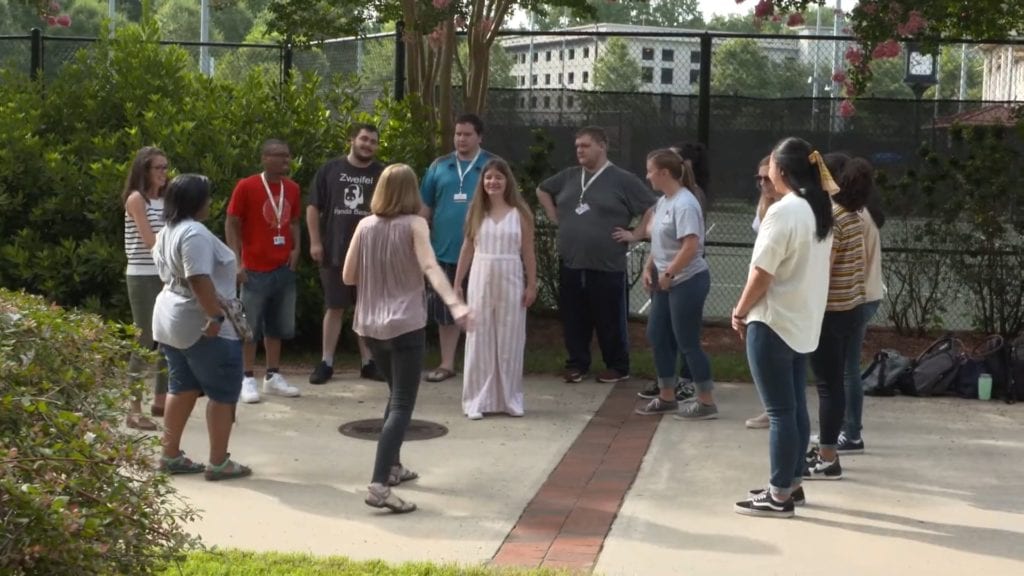Most people think of high school graduation as an exciting new beginning. But to parents of children with autism spectrum disorder (ASD), it can also be a time of confusion, stress and flat-out fear. Those mixed emotions are understandable – and are relatable for the parents of teenagers who are living with autism. According to Autism Speaks, more than 70,000 individuals living with autism are expected to enter adulthood and age out of school-based services each year.
Families may be concerned about losing the support their child received in school, but through federal laws like the Individuals with Disabilities Education Act (IDEA), there are still community resources available for teenagers navigating their growing desire for independence.
Here, we share some advice and recommendations to help support your child and family during this time of transition and change.
Striking the Right Balance of Independence
It’s impossible to generalize about the lives of adults with ASD. Obviously, not everyone on the spectrum shares the same challenges or experiences. Some may be able to live independently, and even make important contributions to science, music and other fields. Others will need daily care throughout their lives. Many will land somewhere in-between and may need to rely on their families or social services in ways that extend well beyond the norm.
Wherever your child may fall, it’s important to find the right balance of services so that they can continue to lead enriching lives – and you can find the support you need. One path forward to help build your child’s independence is to continue work to instill important life skills.
Life Skills for Adults with Autism
Whether your child’s plans include college, staying at home, finding work or living independently, there are certain life skills and conversations you may want to consider, based on what’s most appropriate for your child.
- Help your teen develop soft skills, like interviewing, communicating and decision making. Connect with a program, such as myLIFE at Emory Autism Center or with a behavioral health specialist experienced in working with individuals diagnosed with ASD.
- Practice social skills. Encourage your child to participate in a social setting where they feel safe, comfortable and included. The myLIFE program also helps connect adults with ASD with peers to help foster confidence, independence and social skills. Social engagement could include community activities and groups that align with your child’s interests, gifts and abilities. Community or group engagement help create a sense of belonging.
- Find the next step that’s right for them. It can be tempting to go along with what others are doing or hold onto a plan you made years ago. Instead, spend the time evaluating your child’s strengths and weaknesses and start them on the path that’s best for them. That may include college, a community program, an internship or a part-time job. As an added benefit to you and your family, Emory Autism Center offers transition assessments for young adults that help evaluate social skills, self-awareness, executive functioning and daily living skills.
- Assistance and support for college students. Attending college can be the right choice for some young adults living with autism. Under the leadership of Matthew Segall, PhD, counseling and advice on self-advocacy and other skills to enhance a student’s success in college are available through a support program called Emory Oaks at Emory Autism Center.
- Request an updated evaluation. You may need an updated assessment for your child in order to apply for insurance, waivers, support services and college. A recent evaluation can also provide important insight on the strengths your child has and identifies opportunities to help your child continue to grow and gain confidence. Emory offers the Teen and Adult Assessment Program (TAAP) for families seeking evaluation. Associated symptoms, such as symptoms of social anxiety or depression, and problems with attention and planning are also evaluated.
About Emory Autism Center Adult Services
The Emory Autism Center’s adult programs work to address some of the challenges faced by adults with ASD. Our programs emphasize the inclusion of people with adult autism in their own communities and work to facilitate positive interactions with neurotypical and neurodiverse peers. We offer a comprehensive and coordinated approach to care, including access to our psychopharmacology clinic, myLIFE, assessments and, of course, our team of experienced and dedicated professionals.
Emory Autism Center is the only university-based center in Georgia that serves people with autism of all ages. For more information, call 404-727-8350.
Emory Brain Health Center
The Emory Brain Health Center uniquely integrates neurology, neurosurgery, psychiatry and behavioral sciences, rehabilitation medicine and sleep medicine and transforms patient-centered care for brain and spinal cord conditions through research and discovery.
Bringing these specialties together allows more than 400 researchers and clinicians from different areas to collaborate to predict, prevent, treat or cure devastating diseases and disorders of the brain more rapidly. These collaborations are demonstrated in numerous centers and programs across the Brain Health Center, including the Epilepsy Center, Pituitary Center, Stroke Center, Treatment-Resistant Depression Program and Veterans Program.
Emory’s multidisciplinary approach is transforming the world’s understanding of the vast frontiers of the brain, harnessing imagination and discovery to address 21st-century challenges.
Learn more about comprehensive, diagnostic and innovative treatment options at the Emory Brain Health Center.
